Mayors commit to ZEVs: Twelve cities have committed to converting over to zero emission vehicles by 2030 by signing the C40 Fossil-Fuel-Free Streets Declaration. The mayors of 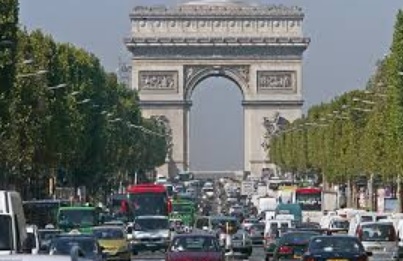 London, Paris, Los Angeles, Copenhagen, Barcelona, Quito, Vancouver, Mexico City, Milan, Seattle, Auckland, and Cape Town have signed the declaration that commits to procuring only zero-emission buses from 2025, and to make sure a major area of their city is zero emission by 2030. Commitments include increasing usage of walking, cycling, public transportation, and shared transport; reducing the number of polluting vehicles on their streets; converting over to ZEVs for their city fleets; and collaborating with suppliers, fleet operators, and businesses to shift over to ZEVs and reduce vehicle miles in these cities. Paris mayor Anne Hidalgo, who led the ban for elimination of fossil fuel-powered vehicles in the city, is serving as C40 chair. “Working with citizens, businesses and mayors of these great cities we will create green and healthy streets for future generations to enjoy,” Hidalgo said.
London, Paris, Los Angeles, Copenhagen, Barcelona, Quito, Vancouver, Mexico City, Milan, Seattle, Auckland, and Cape Town have signed the declaration that commits to procuring only zero-emission buses from 2025, and to make sure a major area of their city is zero emission by 2030. Commitments include increasing usage of walking, cycling, public transportation, and shared transport; reducing the number of polluting vehicles on their streets; converting over to ZEVs for their city fleets; and collaborating with suppliers, fleet operators, and businesses to shift over to ZEVs and reduce vehicle miles in these cities. Paris mayor Anne Hidalgo, who led the ban for elimination of fossil fuel-powered vehicles in the city, is serving as C40 chair. “Working with citizens, businesses and mayors of these great cities we will create green and healthy streets for future generations to enjoy,” Hidalgo said.
The state of AVs: A new global map by Bloomberg Philanthropies and The Aspen Institute shows were autonomous vehicles stand in cities around the world. They’re broken up into two categories – Piloting Cities and Preparing Cities. Piloting cities have conducted tests of self-driving cars, or will do so in the near future. Preparing cities are conducting long-range surveys of the regulatory, planning, and governance issues raised by autonomous, but have not yet started pilot projects. The US leads the way, followed by the UK and China. Cities make the most sense to study, with technology giants, automakers, and startups focusing on these markets. That’s where future AV customers are expected to live and work, according to the study.
Fast food waste supporting renewable diesel: California is seeing more of its fuel coming from fats and oils used by fast food restaurants as fleets comply with the Low Carbon Fuel Standard.  Seven years after the credit system was initiated for producers of low-carbon fuels, cities and companies are using renewable diesel coming from fats and oils for all types of vehicles, including fire trucks to UPS delivery trucks. Bloomberg reported that the value of the LCFS credits for renewable diesel exceed those from electric vehicles fourfold and are second only to ethanol. The market “is definitely growing,” said Dayne Delahoussaye, head of Neste’s North American public affairs, the largest supplier of renewable diesel in California. “Renewable diesel has become very popular with the refining community as a good tool to meet obligations.”
Seven years after the credit system was initiated for producers of low-carbon fuels, cities and companies are using renewable diesel coming from fats and oils for all types of vehicles, including fire trucks to UPS delivery trucks. Bloomberg reported that the value of the LCFS credits for renewable diesel exceed those from electric vehicles fourfold and are second only to ethanol. The market “is definitely growing,” said Dayne Delahoussaye, head of Neste’s North American public affairs, the largest supplier of renewable diesel in California. “Renewable diesel has become very popular with the refining community as a good tool to meet obligations.”

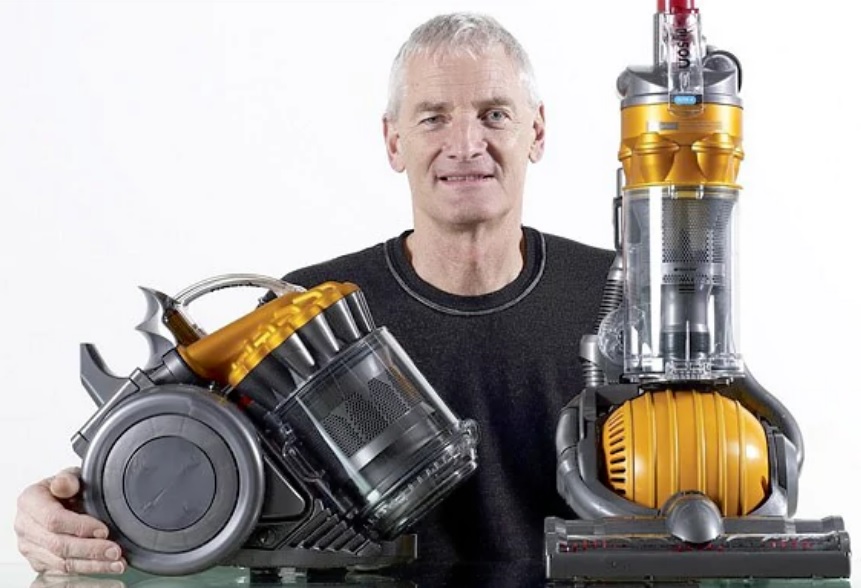 investing about $2.7 billion in solid-state battery technology and designing the EV. It will be put together by a team of more than 400 employees, said founder James Dyson. It won’t be an affordable Tesla Model 3, Chevy Bolt, and Nissan Leaf competitor. Dyson said it will be an expensive car, and those interested will have to “wait and see” what it’s going to look like. Rumors have been floating about the company getting into the EV race for a few years now, which was clarified last year in a government document filing. The company’s sales have grown in recent years as it expanded its presence in Asia. That will be a big part of its EV launch. “We see a very large market for this car in the far east,” Dyson said.
investing about $2.7 billion in solid-state battery technology and designing the EV. It will be put together by a team of more than 400 employees, said founder James Dyson. It won’t be an affordable Tesla Model 3, Chevy Bolt, and Nissan Leaf competitor. Dyson said it will be an expensive car, and those interested will have to “wait and see” what it’s going to look like. Rumors have been floating about the company getting into the EV race for a few years now, which was clarified last year in a government document filing. The company’s sales have grown in recent years as it expanded its presence in Asia. That will be a big part of its EV launch. “We see a very large market for this car in the far east,” Dyson said.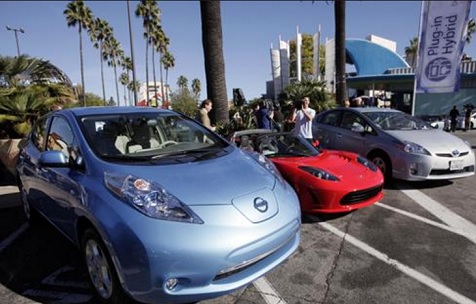 exploring barring the sale of vehicles in California with internal combustion engines. The earliest ban would be a decade away and ties into the state’s campaign to battle climate change. The move would send shockwaves to automakers, which have already been working on meeting the state’s zero emission vehicle mandates in the world’s largest auto market. A more pressing issue for California has been how the Trump administration will be ruling on the fuel economy and emissions standards, and if California’s ZEV guidelines will be included.
exploring barring the sale of vehicles in California with internal combustion engines. The earliest ban would be a decade away and ties into the state’s campaign to battle climate change. The move would send shockwaves to automakers, which have already been working on meeting the state’s zero emission vehicle mandates in the world’s largest auto market. A more pressing issue for California has been how the Trump administration will be ruling on the fuel economy and emissions standards, and if California’s ZEV guidelines will be included.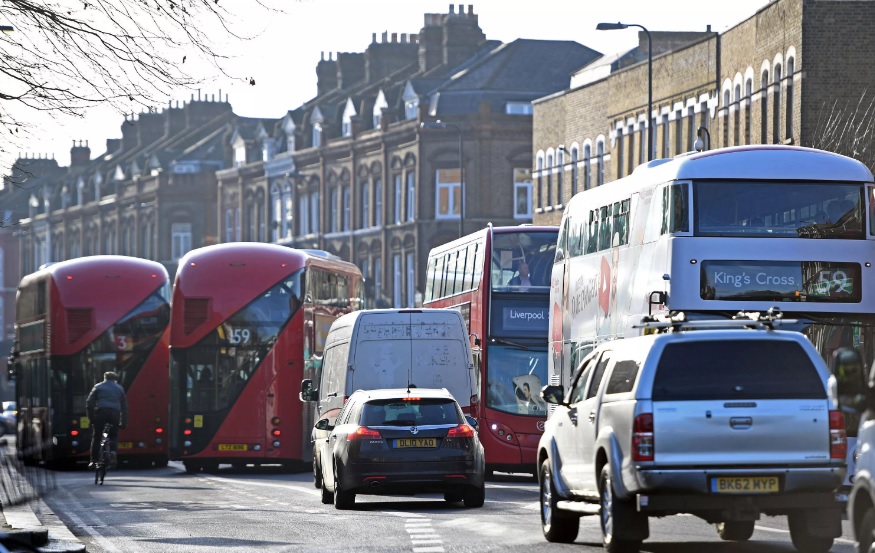 follows France, which decided to ban all fossil-fuel powered vehicles by 2040. The mayors of London, Paris, Madrid, Mexico City, and Athens are developing their own policies for clean air and climate change, would like to ban diesel vehicles. The British government has faced legal pressure from a series of lawsuits, and the national government has been taking steps to scrap diesel-powered cars. Nearly 200 million pounds (about $261 million) will go to local governments in the UK to help them restrict access by diesel-powered vehicles to extremely polluted roads. Battery electric vehicles will probably be the route chosen by the national government to replace gasoline and diesel powered cars.
follows France, which decided to ban all fossil-fuel powered vehicles by 2040. The mayors of London, Paris, Madrid, Mexico City, and Athens are developing their own policies for clean air and climate change, would like to ban diesel vehicles. The British government has faced legal pressure from a series of lawsuits, and the national government has been taking steps to scrap diesel-powered cars. Nearly 200 million pounds (about $261 million) will go to local governments in the UK to help them restrict access by diesel-powered vehicles to extremely polluted roads. Battery electric vehicles will probably be the route chosen by the national government to replace gasoline and diesel powered cars.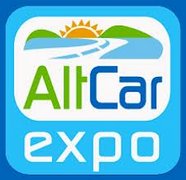 speaker panels on pressing topics for fleets, government officials, vehicle manufacturers, technology companies, and enthusiasts interested in the issues and trying out the vehicles. AltCar Expo offers the best Ride & Drive out there, with several green cars to drive and a few commercial fleet vehicles to see. With the Trump administration deciding to exit the Paris climate accord, leaders are looking for other channels to address the issues; that includes the role California is playing.
speaker panels on pressing topics for fleets, government officials, vehicle manufacturers, technology companies, and enthusiasts interested in the issues and trying out the vehicles. AltCar Expo offers the best Ride & Drive out there, with several green cars to drive and a few commercial fleet vehicles to see. With the Trump administration deciding to exit the Paris climate accord, leaders are looking for other channels to address the issues; that includes the role California is playing.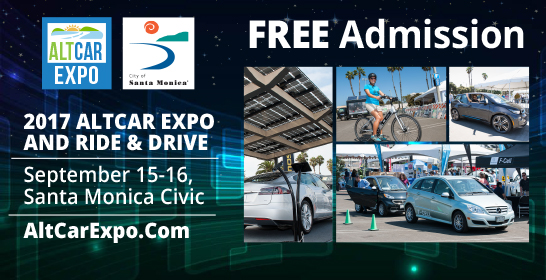
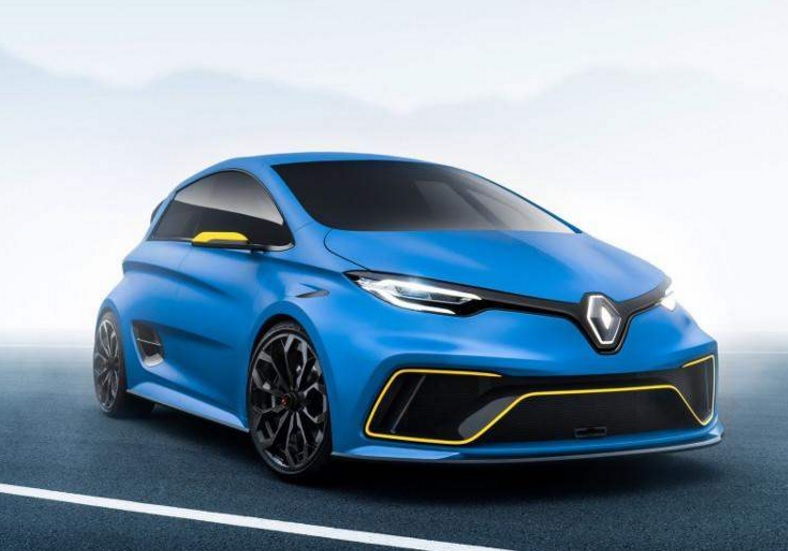 Trump has pulled the U.S. out of it. France aims to be carbon neutral by 2050 to honor the agreement. He acknowledged that stopping sales of fossil-fuel powered vehicles would be a “revolution,” solutions are available and French automakers would be up to the task. Typical to markets around the world, electrified vehicles only make for a small share of total vehicle sales. During the first half of this year, gasoline and diesel vehicles made for 95.2% of new vehicle sales in France; hybrids made up about 3.5% and plug-in electrified vehicles made up about 1.2% of the market. The Renault Zoe, seen in this image in its e-Sport Concept version, has been a top seller in France and throughout Europe.
Trump has pulled the U.S. out of it. France aims to be carbon neutral by 2050 to honor the agreement. He acknowledged that stopping sales of fossil-fuel powered vehicles would be a “revolution,” solutions are available and French automakers would be up to the task. Typical to markets around the world, electrified vehicles only make for a small share of total vehicle sales. During the first half of this year, gasoline and diesel vehicles made for 95.2% of new vehicle sales in France; hybrids made up about 3.5% and plug-in electrified vehicles made up about 1.2% of the market. The Renault Zoe, seen in this image in its e-Sport Concept version, has been a top seller in France and throughout Europe.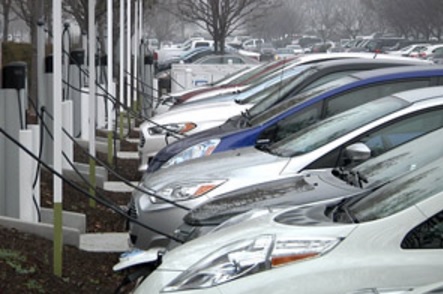 Virginia, Michigan, Minnesota, and California, have enacted new fees this year. Six other states have introduced legislation this year that would require PEV owners to pay a separate fee, including Indiana, South Carolina, Kansas, Tennessee, New Hampshire, and Montana. Vermont and Oregon are considering a fee based on vehicle miles traveled, rather than fuel type, but these rules may not pass through. PEV fees have been passed to pay for more transportation infrastructure upgrades, and to make up for lost tax revenue that PEV drivers don’t have to pay in gasoline and diesel taxes. Incentives are being added to get consumers to buy these cars, but the fees are mostly being charged on an annual, recurring basis.
Virginia, Michigan, Minnesota, and California, have enacted new fees this year. Six other states have introduced legislation this year that would require PEV owners to pay a separate fee, including Indiana, South Carolina, Kansas, Tennessee, New Hampshire, and Montana. Vermont and Oregon are considering a fee based on vehicle miles traveled, rather than fuel type, but these rules may not pass through. PEV fees have been passed to pay for more transportation infrastructure upgrades, and to make up for lost tax revenue that PEV drivers don’t have to pay in gasoline and diesel taxes. Incentives are being added to get consumers to buy these cars, but the fees are mostly being charged on an annual, recurring basis.